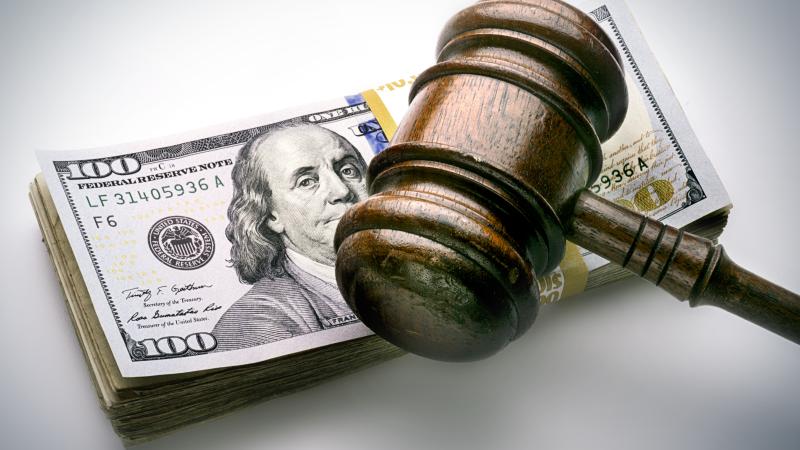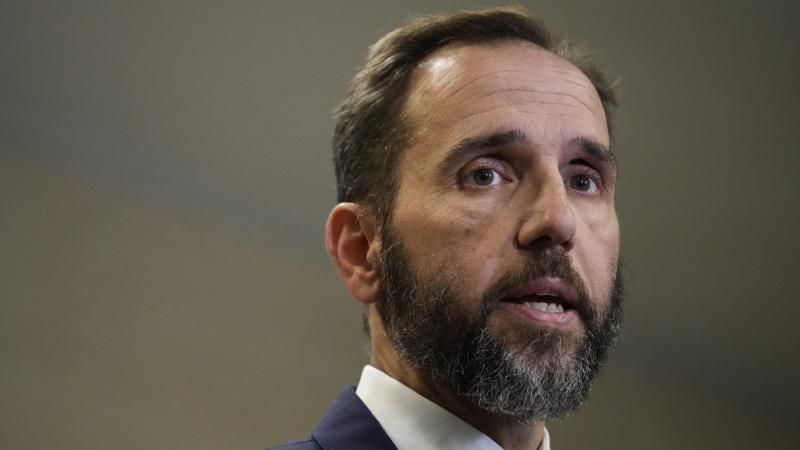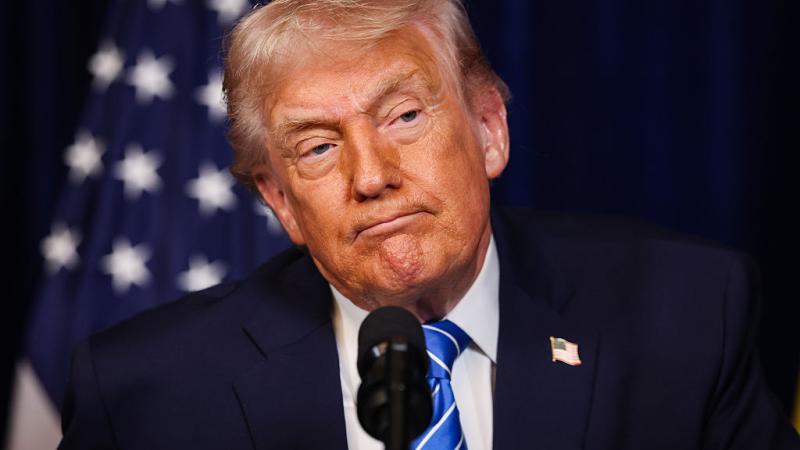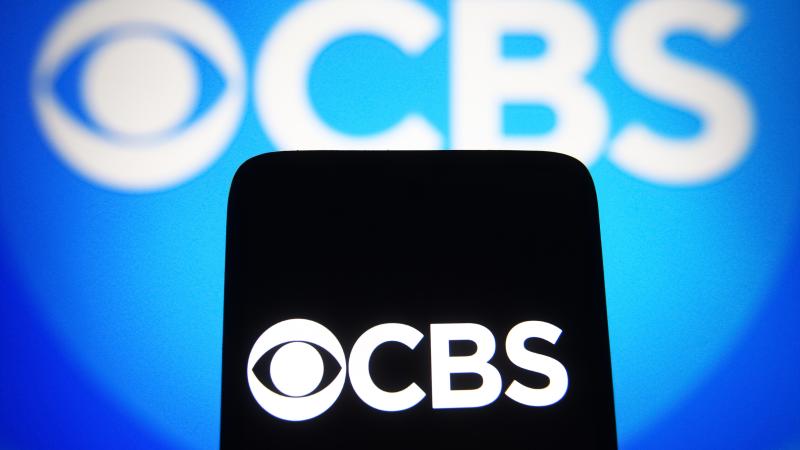Bombshell memos: Biden aides believed he should sign pardons by hand, he outsourced approval to VP
The new internal memos from the Biden White House are the first glimpse into the Trump administration’s probe into the former president’s mental decline and the abundant use of his autopen signature.
Internal memos obtained by Just the News show President Joe Biden’s aides believed at the beginning of his administration that he had an obligation to personally sign official presidential actions, including pardons, and chronicle how the former president later outsourced clemency decisions to then-Vice President Kamala Harris.
The memos were gathered as part of a sweeping review by the Trump White House into Biden's use of autopen signatures for official business, an inquiry that now raises new questions about whether the former president actually attended four meetings late in his term dedicated to making clemency decisions.
Those clemency decisions included pre-emptive pardons for Biden family members as well as commutations for federal death row sentences.
No records of Biden attending meetings that resulted in clemency
The National Archives and Records Administration told the Trump White House Counsel's office that "we did not find specific meeting notes that clearly mention or note that the President was present" for any of the four meetings, according to the documents reviewed by Just the News.
"President Biden’s decision memo on commuting federal death row sentences is unmarked, and NARA cannot find a version indicating President Biden’s approval," the documents added.
The Office of Joe and Jill Biden did not respond to a request for comment sent through its contact page.
The Pew Research Center reported that Biden "granted more acts of clemency than any previous chief executive on record" and noted that "overall, Biden granted 4,245 acts of clemency during his four-year tenure in the White House."
In June, President Donald Trump ordered the White House Counsel to lead an investigation into whether any senior administration officials had “conspired to deceive the public” about the former president’s mental state and exercise his authority and responsibilities.
Trump then specifically directed the investigators to probe the use of the autopen on official documents or clemency actions.
Memo: Policy started out requiring hand signature on pardon letters
The White House investigation uncovered an early memo that shows a day one administration policy to use an “original hand signature” for pardons had been abandoned by Biden’s final year in office, when the autopen was frequently used to sign orders as part of the president’s prolific clemency spree.
Within one month of Biden taking office, the White House Staff Secretary Jess Hertz disseminated that draft memo, outlining the official policies that would govern whether certain presidential actions would require a handwritten signature from the new president or would be eligible for the autopen.
That February 2021 draft memo states unequivocally that senior staff would recommend the president personally sign “pardon letters” with an “original hand signature,” according to a copy of the document provided to Just the News. The staff secretary wrote that the determination was based on the precedents established during the Obama-Biden administration.
“Based on precedent from the Obama-Biden Administration regarding which documents generally are hand-signed by the President, our recommendation is that as a general rule, YOU personally approve and hand-sign all decisions that require Presidential action,” the memo reads.
The records show the draft memo was distributed to Chief of Staff Ron Klain, Deputy Chief of Staff Jen O’Malley Dillon, Deputy Chief of Staff for Policy Bruce Reed, and Director of White House Oval Office Operations Annie Tomasini. However, there is no record of any final version of the memorandum in the National Archives, the review found.
You can read the internal memos obtained by Just the News below:
Biden claims to have made clemency decisions, but passed off some to VP Harris
By the final year of Biden’s term, a lack of briefing records and contemporaneous meeting notes raises questions about whether Biden was being sufficiently briefed on the decisions in front of him, and whether he was ultimately making the decisions at all, the White House concluded.
In a June 2025 statement, amid public scrutiny of his pardons, Biden declared: “I made the decisions about the pardons, executive orders, legislation and proclamations. Any suggestion that I didn’t is ridiculous and false."
However, a draft memorandum circulated by Biden’s own White House Counsel’s office in February 2024 describing the “general pattern” for obtaining approval for clemency actions appears to contradict the president’s assertion. The document shows that by the president’s last year in office, he was increasingly relying on Vice President Harris' assessment, rather than his own, in the approval process.
“Note: Given the President’s schedule, it can often take days or weeks for the President to review and approve the clemency package,” the lawyers’ memo reads. “The Chief of Staff’s office has been helpful in getting the paper in front of him for his review.”
“He previously asked the White House Counsel to discuss the candidates with him, although in the last round the Vice President’s approval was sufficient to obtain his approval,” the lawyers noted.
The Trump White House concluded that this memo shows the former president was effectively “outsourcing” clemency decisions to Harris during that final year.
Further, the review found scant contemporaneous evidence that Biden had actually attended four key clemency meetings in the waning months of his term and turned up no record of the president’s briefing books addressing pardons, commutations, or clemency at that time.
There were four meetings over December 2024 and January 2025 during which President Biden was said to have given “verbal approval” for his wide-ranging clemency actions, including commutations for CARES Act home confinement recipients, federal death row inmates, and crack-powder sentencing disparities, as well as Biden family pardons.
However, despite retroactive emails detailing Biden’s presence at the four meetings—which allegedly took place on December 5, December 11, January 11, and January 19—the National Archives possessed no contemporaneous staff notes from any meeting attendees that could confirm that the former president was present at those meetings or gave verbal approval to those clemency acts.
More doubts emerge about staff fully informing Biden on actions
During that same December to January period, the White House found that none of the former president’s briefing books substantively discuss any clemency actions, raising questions about whether the president was informed of the full scope of the actions he insists that he approved.
In fact, the only information provided to Biden that addressed clemency actions during that period came on December 13, 2024, in a briefing book which contains more than 60 pages of new reports on the commutation of CARES Act home confinement recipients and talking points for the president’s interview with USA Today, the White House review found.
For one of the most controversial clemency acts, the commutation of sentences for 37 federal inmates sitting on death row, the White House review also called into question whether the president gave his final assent to the action.
The White House obtained a December 10, 2024, draft memorandum from White House Counsel Edward Siskel recommending the president “use YOUR clemency authority to commute – to life imprisonment without the possibility of probation – the sentences of the 37 people the current Attorney General would not authorize for death today based on current charging standards,” the documents show.
At the top of the memo there were listed four options for Biden to choose: Approve, Approve as Amended, Reject, or Discuss. However, the National Archives could not find any final version of the memo indicating the president’s approval of the 37 communtations, the White House said. Yet, all 37 were signed.
This first glimpse into the White House Counsel’s probe into the previous administration follows on the heels of significant scrutiny from the Republican-controlled Congress, which separately launched a probe into the autopen policy and what many believe was Biden's rapidly declining acuity.
That probe, led by the House Oversight Committee, found that several senior officials tasked with defending the president’s health and managing the autopen approval process had remarkably little access to Biden himself, Just the News previously reported.
Biden's interaction with autopen managers became less and less frequent
Those senior aides to Biden insist that while president he remained fit to govern and mentally capable during the final years of his single term. But, their congressional interviews paint a picture of a siloed White House and often show key staff members had minimal interactions with the chief executive.
Additional witnesses have been less forthcoming about their work in the White House. The former president’s personal physician and first lady Jill Biden’s chief of staff each invoked their Fifth Amendment right against self-incrimination under questioning by the GOP-led House Oversight Committee.
Like the White House, Oversight Chairman James Comer believes his probe has shown that senior staff have failed to prove the former president actually knew what he was signing and that the evidence could be used to challenge some of Biden’s pardons or executive orders.















